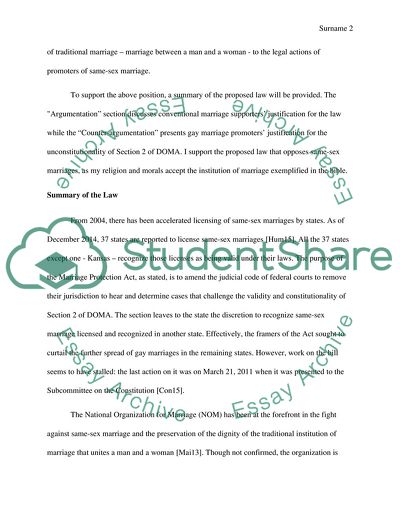Cite this document
(Marriage Protection Act of 2011 Report Example | Topics and Well Written Essays - 1500 words - 24, n.d.)
Marriage Protection Act of 2011 Report Example | Topics and Well Written Essays - 1500 words - 24. https://studentshare.org/law/1863306-research-paper
Marriage Protection Act of 2011 Report Example | Topics and Well Written Essays - 1500 words - 24. https://studentshare.org/law/1863306-research-paper
(Marriage Protection Act of 2011 Report Example | Topics and Well Written Essays - 1500 Words - 24)
Marriage Protection Act of 2011 Report Example | Topics and Well Written Essays - 1500 Words - 24. https://studentshare.org/law/1863306-research-paper.
Marriage Protection Act of 2011 Report Example | Topics and Well Written Essays - 1500 Words - 24. https://studentshare.org/law/1863306-research-paper.
“Marriage Protection Act of 2011 Report Example | Topics and Well Written Essays - 1500 Words - 24”. https://studentshare.org/law/1863306-research-paper.


